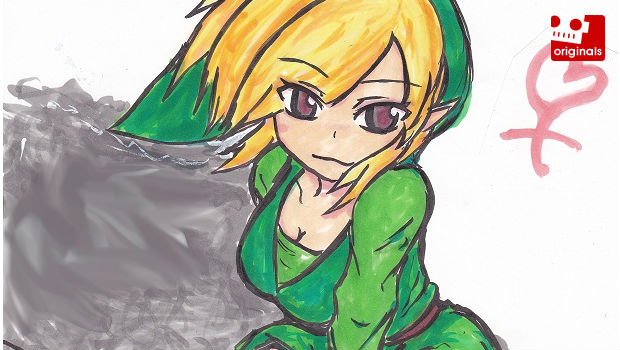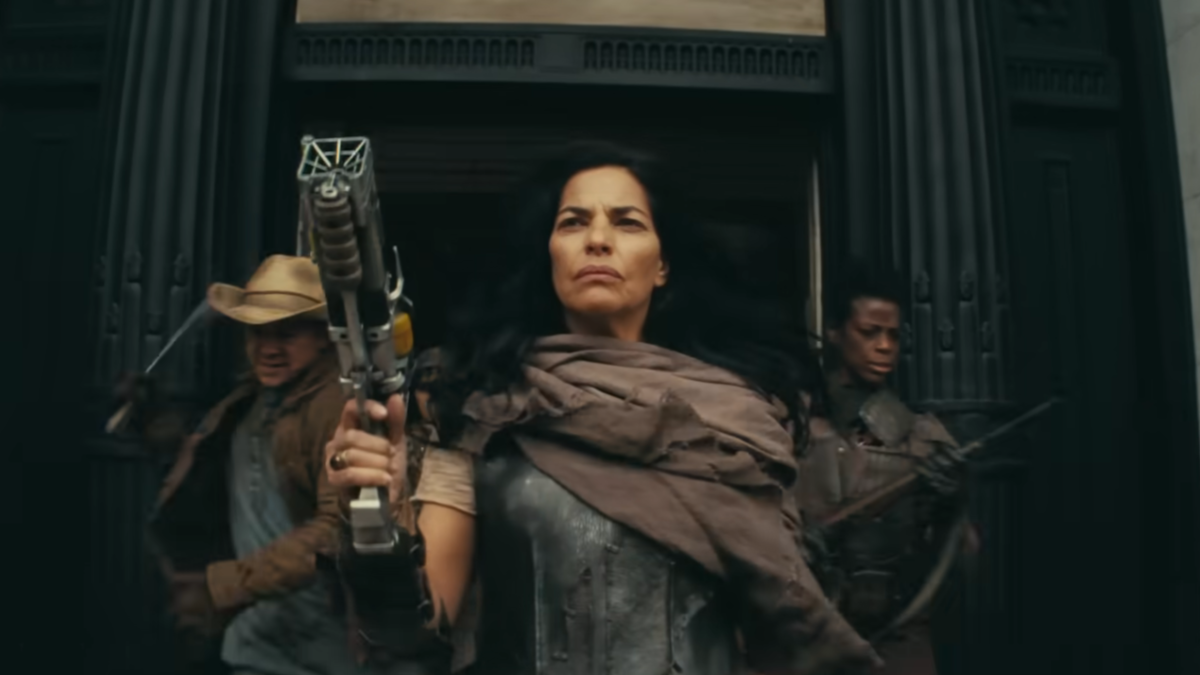Despite our ability for highly complex conceptual thinking and communication, human beings are still a fairly primitive species. We may be able to create nuclear bombs and cell phones, but underneath all our “achievements,” our behavior is still ruled by our emotional reactions to various external stimuli.
If a heterosexual man sees a woman who has lumps of fat on her chest of a particular size and shape, he may feel lust, affection, or even worship for her, leading to all sorts of bizarre behavior. If the same man is driving a car, and the same lumpy-chested woman accidentally hits his car with her car, he may feel an immediate need to permanently destroy the threatening car and/or its driver. Of course, when he jumps out of his car, brain swimming in adrenaline, to accost the other driver, he’s going to get pretty confused when he sees those lumps. His mind, initially set on “killing” mode, will suddenly shift to “porking” mode, with some potential for crossover between the two. Oh, the complexity of the human condition! And don’t even get me started on what would happen if the woman turns out to have a penis!
This hypothetical scenario reminds me of something I see in a lot of gamers. They’ll see a game that they really want to play, but at the same time, they’ll think the game isn’t worth the exact amount of money it costs to play it, which will lead them to pass on the game for good. How can it be that some of us have the urge to play videogames that we simultaneously devalue in our own minds? Read on for more about this fascinating examination of gamer behavior!

Gamers today have come to expect certain things from the game industry and the games they play. These standards and preconceived notions have changed which games people choose to buy, as well as if and when they buy them. Thing is, these standards often go past the point of reason; they are visceral emotional reactions. With reason taken out of the equation, these standards and expectations aren’t always to the benefit of gamers. How many people bought the recently released Resident Evil 4 HD just because reading the abbreviation “HD” immediately made them want to buy a game, even though they already own what is essentially the exact same experience in three other formats? How many of us passed on the excellent online Wii title Monster Hunter Tri because we heard the words “online” and “Wii” in the same sentence and immediately felt the urge to run?
In short, we feel like we know what we want, but sometimes our feelings are wrong about how we can get it. Worse, sometimes we start whining and picking sides before logical thought even enters the equation.
Case in point; a vocal minority of gamers have called out the re-release of The Legend of Zelda: Four Swords for not having online multiplayer. Never mind that the game was designed for local multiplayer but now has a single-player mode just in case you don’t know anyone else with a DSi or a 3DS (not to mention that the game is free). The fact that this game doesn’t have online play has some people thinking that the game should be cheaper, effectively meaning that they feel that Nintendo should be paying them to play their game. Their instinct to want the game (because it looks fun) and not want the game (because it’s not online) cancel each other out to create a sort of mental black hole, where logic and reason are hopelessly lost forever.

It’s a similar to the thinking that my good friend Jim Sterling has applied to Star Fox 64 3D. He called the game a “tech demo,” presumably because it didn’t have online play. This is despite the fact that the game offers the exact same high-quality experience that fans paid $60+ for on the N64 ten years ago, only with new and improved graphics, control options, and (local) multiplayer modes. It’s like saying that a re-release of The Godfather on DVD is “like a student film” because it doesn’t have all-new special effects and deleted scenes. When I first read Jim’s post, my instinct was to grab him and shake him. I wasn’t mad, just frustrated to once again see a friend pass on a game because of some arbitrary standard of worth.
It felt even worse to see that so many people had the emotional urge to pass on Super Meat Boy because it “looks like a browser game,” or Mega Man 9 because “it looks like a NES game,” or No More Heroes 2 because “it looks like a PS2 game.” If you just don’t like the way those games look, that’s one thing, but it’s another to devalue them just because they utilize a visual style that you believe doesn’t meet some technological standard. In animation, it doesn’t matter if a film’s art is hand-drawn, computer-generated, stop-motion, or a combination of the three. What matters is that it’s imaginative and evocative. The same should be true of videogames as well, but instead, we have a culture where measuring “how many graphics” a game has in order to assess its worth is more or less the norm.

Of course, we all place different levels of value on various aspects of the games we play; there is nothing wrong with that. Where we get in trouble is when we start promulgating a culture in which certain aesthetic styles or gameplay features start to take on a monetary value. Whether you like a game or not, or whether you value its features or not, should have nothing to do with how much you think a game is worth to everyone. Personally, I wouldn’t pay more than $10 for any of the Call of Duty games, because I don’t really enjoy them, but you don’t see me going around saying that Modern Warfare 3 should be a budget release or a $10 PSN/XBLA title. Just because the game isn’t worth that much to me doesn’t mean I think it’s not worth much to anyone, but that’s exactly what a lot of gamers are saying about games that don’t meet those arbitrary standards.
So how did we get here? How is it that five years ago, most gamers would be happy to pay $50 for an eight- to 12-hour-long offline game like Devil May Cry 3, but now a similar title like El Shaddai gets the “this shouldn’t be full price, it should have been on PSN/XBLA for $15” treatment? Gamers have been trained to expect more for less. We’ve been spoiled by free demos, piracy, used games, $0.99 apps, and many other aspects of modern gaming. The fact that some of us a freaking out over the fact that you’ll have to actually buy Uncharted 3 new to play the game’s free online multi-player just goes to show how much free content we’ve come to expect from our hobby.

If a game comes out that’s a new IP and/or from a smaller developer, we’ve learned to wait for the price drop, because these games almost always drop in price within six months. If a game doesn’t utilize every possible technological advantage of modern PCs and/or consoles, we expect it to be a downloadable game, because so many great downloadable games don’t have AAA budgets. If a game doesn’t have online multiplayer, we think it’s impossible to share our experiences with the game with others, because so many of us have learned that it’s safer and easier to keep our love of gaming closeted in our bedrooms.
Hearing all that, you might think that today’s gamers are just a different breed than those who grew up loving Pac-Man and Donkey Kong. Thing is, gamers today want the same things that gamers have always wanted. Like the guest on this week’s episode of TtWaV said, we all want games that are fun to play, that are fun to think about even when we’re not playing them, and that are worth sharing with friends. That’s the kind of experience that’s worth paying $60 for. The problem is that a lot of us think we’ve learned that the only way a game can meet those conditions is via the current “blockbuster” model. That’s what we’ve been trained to believe by modern game marketing and the online gamer culture that it has helped to create.

All this has led fewer and fewer gamers to take chances on “non-blockbuster” games, despite the fact that the games may have cost just as many millions of dollars to create and offer just as worthwhile of an experience. Not unlike how “top-tier” fighting game characters can cause a feedback loop between being overexposed and overused, “top-tier” games are being overplayed and overhyped. With the market becoming ever more crowded, “mid-tier” games have less and less of a chance of survival, even if they’re arguably more memorable, more fun, and more worth owning than the next GTA or Call of Duty (just ask the developers of Child of Eden, Shadows of the Damned, the previously mentioned El Shaddai, or more third-party Wii titles than I could ever hope to list in between these meager parentheses).
Take the latest game in the Rhythm Heaven series, for instance. It’s a Wii title that has pretty much the same amount of content as its DS and GBA predecessors, though when it’s finally released outside of Japan, it will presumably retail for the standard suggested Wii game price of $49.99. The game isn’t even out yet, and people have said that unless the game “has a lot more to it that the GBA and DS Rhythm Heaven games, it’s not going to be worth full price.” In my experience, that couldn’t be farther from the truth. I’ve had more fun playing, thinking about, and sharing Rhythm Heaven Wii than just about any other game this year. It feels like a bargain at $50 — don’t tell Nintendo this, but I’d easily pay twice that if I had to.

In summation, I implore all of you to not dismiss a game just because it’s not in HD or 3D, because it was made in Japan or the United States, because it doesn’t have online multiplayer or motion controls, or because it doesn’t meet some other arbitrary standard you’ve been trained to think is important. Those things can be important, but they do not necessarily hold any inherent value on their own. They are not required to make a fun, memorable game that is worth sharing with others. The fact that I have to even say that shows that as a culture, gamers are developing more and more strict standards that we think will prevent us from being shortchanged. Those standards have the potential to shortchange us out of countless worthwhile gaming experiences. Having a sense of what kind of games you enjoy is one thing. Being a slave to a preset idea of all the characteristics that a good game must have is another.
If Kung Fu Master had been released today, millions of gamers would likely miss out on the magic of kicking the crap out of bizarre, purple-obsessed, light brown men just because the game doesn’t have online play and costs more than $2. That makes me sad, just like it made me sad back in the PS1 era when people passed on Castlevania: Symphony of the Night because it didn’t use polygon-based graphics, or in the PS2 era when people passed on Shadow of the Colossus because it was “just a bunch of boss fights.” Arbitrary standards have always caused great games to ultimately fail in finding a full audience, though this problem has never been more prevalent in gamer culture than it is now.

The more we can see past the many aspects of gaming that have the illusion of intrinsic value and get to what really makes gaming worthwhile, the better time we’ll have with the medium as a whole. Metaphorically, the sooner we can stop staring at gaming’s boobs, and get to know gaming as a person, the better our relationship with gaming will be. So do your part to help the culture! Spread the word about the games you feel are worth playing, despite the fact that they may not meet the arbitrary standards of quality set by gamer culture today! It will make me glad if you do!
Past Episodes:
Talking to Women about Videogames: 3DS 2nd nub panic
Talking to Women about Videogames: Gears 3 isn’t perfect?
Talking to Women about Videogames: Sexy vs. sexist?




